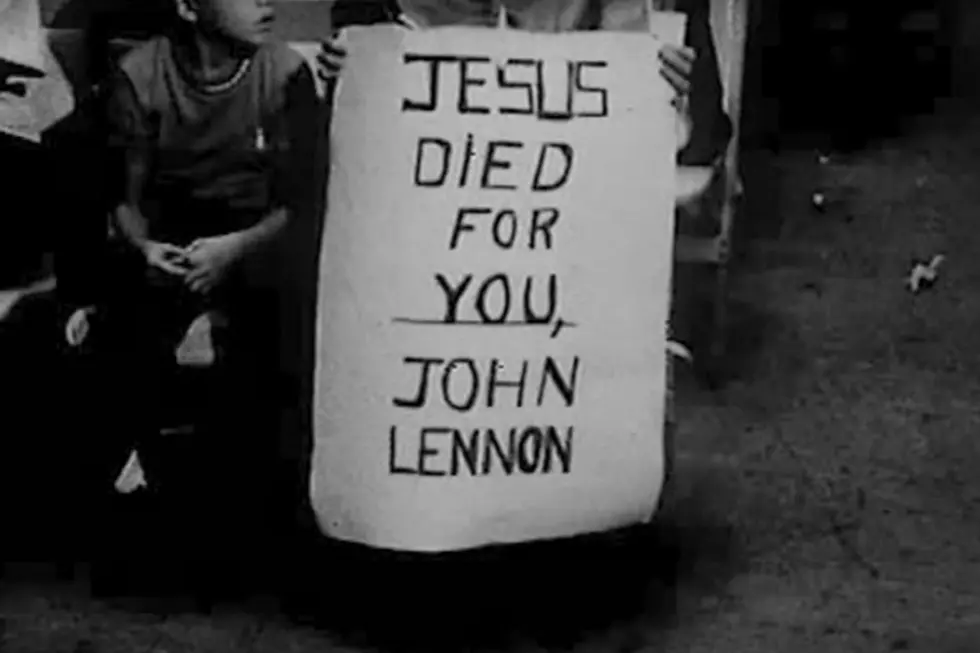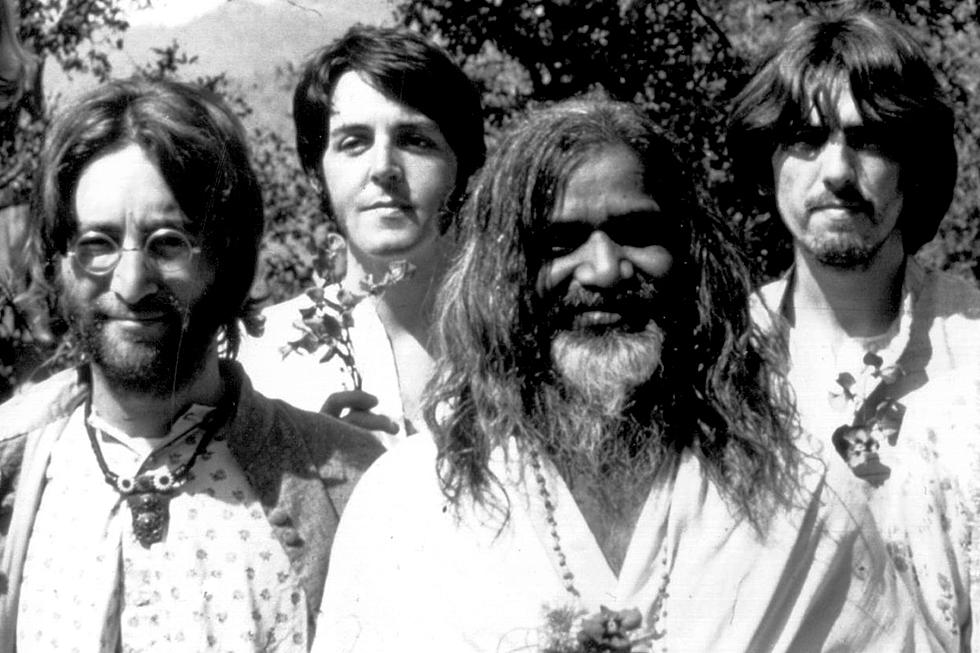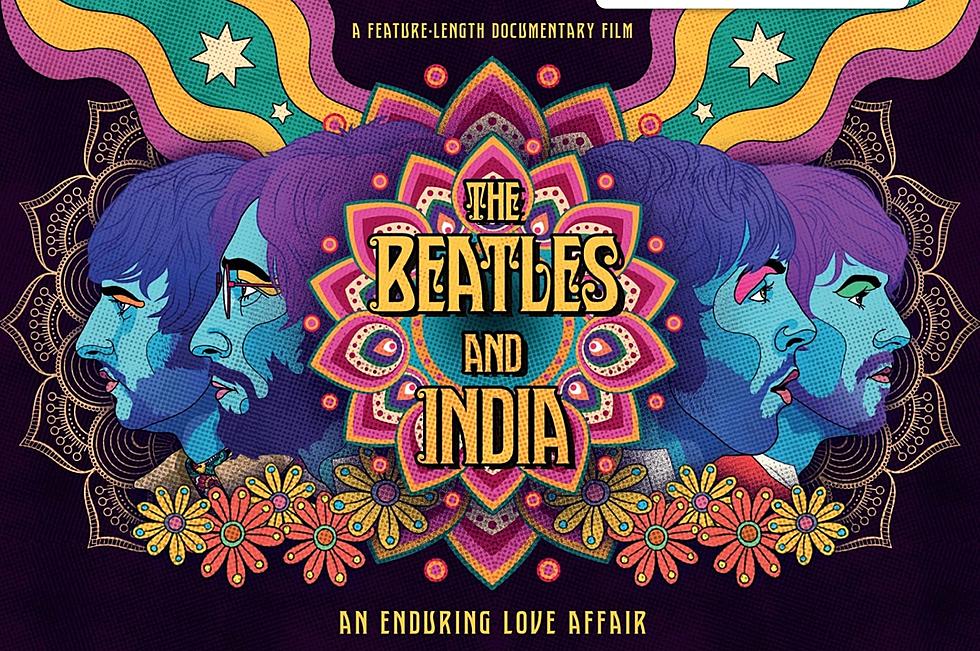
How John Lennon’s ‘More Popular Than Jesus’ Quote Led to Protests
There was little immediate reaction when John Lennon said the Beatles were "more popular than Jesus" in a London Evening Standard interview that appeared on March 4, 1966.
But then the U.S. teen mag Datebook republished the article on July 29 with Lennon's quote – "I don't know which will go first, rock 'n' roll or Christianity" – splashed on the cover. Outrage turned to threats, some serious enough that the Beatles considered halting a planned tour.
Early protests were centered in the South, where disc jockey Tommy Charles of Birmingham, Ala.'s WAQY called Lennon's comments "absurd and sacrilegious." By Aug. 8, Charles and DJ Doug Layton started a "Ban the Beatles" campaign. They refused to play any Beatles' songs and urged listeners to destroy the band's records. About three dozen stations joined the ban, including Memphis' WREB and KMIL, KZEE and KTEO in Texas. In South Carolina, Ku Klux Klan Grand Dragon Bob Scoggin burned Beatles' albums nailed to a burning cross on Aug. 11. Records were tossed into the flames as part of a "Beatles Bonfire."
Demonstrations subsequently spread internationally. On Aug. 9, Costa Ricans burned an effigy of the Beatles in front of a church. Protests were held in Mexico City, South Africa and Spain. The Vatican even weighed in, observing in its newspaper L'Osservatore that "some subjects must not be dealt with profanely, even in the world of beatniks."
The Beatles and manager Brian Epstein were greatly concerned as the band was scheduled to begin a U.S. concert tour on Aug. 12 in Chicago. Lennon tried to smooth things over at a press conference. "I'm not saying we're better or greater or comparing us with Jesus Christ as a person or God as a thing, or whatever it is, you know," he offered. "I just said what I said and it was wrong, or was taken wrong, and now it's all this!"
Beatles Fans React to John Lennon's Statement
Despite protests, the tour proceeded as planned. On Aug. 19, a firecracker was set off onstage at the Mid-South Coliseum in Memphis. The Beatles, already worried about the death threats they had received, immediately thought it might be a gunshot. Young churchgoers picketed the Aug. 29 show at San Francisco, the last show of the tour.
"It made us wonder about touring," said Paul McCartney in Anthology. "It was a case of how much of a good thing can you have? How long can you sustain things? Every tour had gone great, marvelous, but we were becoming a bit fed up anyway because we'd been at it so long – and it gets grueling: one Holiday Inn after another. Now other things were starting to happen: Manila and threats – and people thinking we're anti-Christ!"
Apart from their unannounced appearance on the Apple building rooftop in January 1969, the Candlestick Park appearance would mark the Beatles' final live concert.
"We knew it was getting pretty rough," Ringo Starr said. "The repercussions were that we played a lot of places where people were getting really angry. The Ku Klux Klan were out in force, which was pretty frightening. There was always that edge in America – we knew that they did have guns. ... It was starting to get too much. It was building up to us saying, 'This is it.'"
The Most Shocking Rock Star Fashion Reinventions
You Think You Know the Beatles?
More From Kool 107.9










